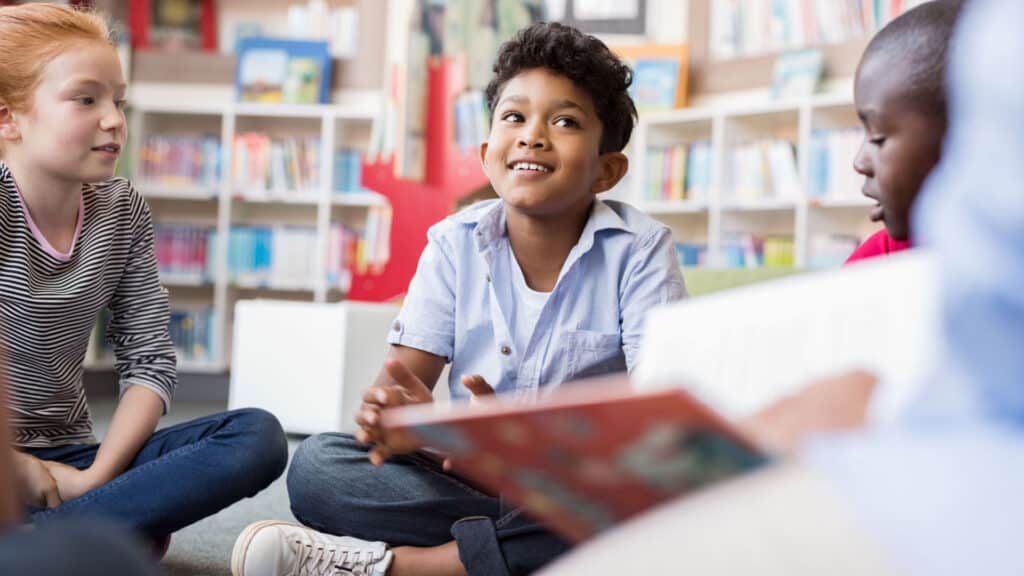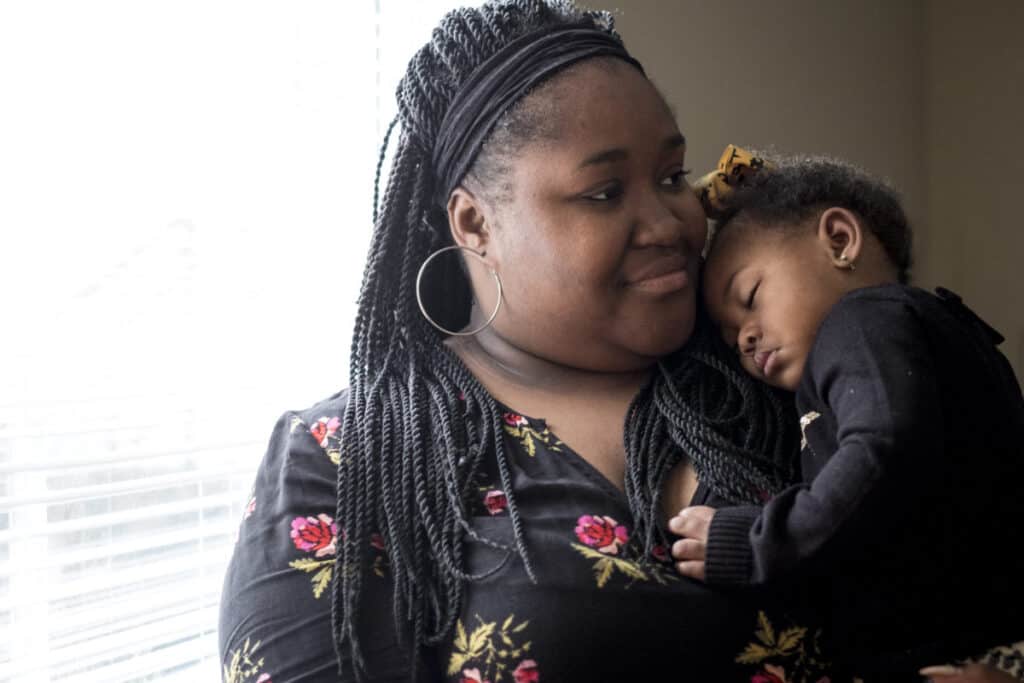If your child is struggling in school, there are many ways you can support them, and many things the school can do to help.
Whether your child is behind in their reading or math skills, stressed about going to school, or having problems with behavior or social relationships, the school system has lots of supports that can help!
Why does my child struggle in school? Is it a learning disability?
Not necessarily. There are many reasons why a child may struggle in school.
All of these things can affect your child’s learning:
- Physical issues: vision, hearing, or muscle weakness
- Cognitive issues: how their brain works
- Learning style: some kids need to see pictures, others need to hear the information, some need to move their bodies as they learn
- Emotional and Mental Health: stress, depression, and other common issues
The main reasons kids have trouble learning are learning disabilities, developmental disabilities, or trouble with focus and attention. We’ll describe those below, but first, here are some reasons that have nothing to do with a child’s abilities:
Home experience:
Children must be ready and open to learning in order to make progress in school. And of course their environment affects their readiness. Lots of things that happen at home and in their community can cause stress, distraction, lack of sleep, anxiety, and other problems that make it hard for them to concentrate and absorb what they learn. The COVID-19 pandemic has also slowed many children’s development, making them less ready to learn at grade level.
If a child is just learning English or has missed a lot of school because of illness, they may have a harder time getting started with learning. Children living in poverty or who have experienced other kinds of trauma may also struggle. If your family sometimes struggles to keep food in the house, or if your child has witnessed violence or is dealing with racism, your child’s learning may be impacted.
These things are not your fault! They are very common and it does not mean your child won’t be successful. It just might mean they need some extra support to catch up.
One way to help your child be ready to learn is to make sure your family has the support it needs outside of school. Enlist the help of friends and family, get any government benefits that you qualify for, and stay engaged with your child at home and at school. Examples: doing activities together that your child likes, talking to them about what they’re learning in school, creating something together. Your attention and support as parents and caregivers goes a long way.
Bullying and harassment:
Bullying takes on many forms and is, sadly, way too common in school. Throughout their school years, kids are forming their identities and learning who they are. They crave acceptance from their peers, and truly need this acceptance to be emotionally healthy. But too many are mistreated because of their race, disability, sexual orientation, religion, gender ID, etc. Mistreatment can include physical bullying, cyberbullying, isolation, and teasing. This can not only damage their self-esteem, but also impact their ability to focus and be open to learning. This means that kids who are bullied or treated badly often struggle in school. This is why it’s important to examine not just their academic challenges, but also their social challenges.
Teaching (instruction):
If the teaching is not high quality, or if the teaching style is not the kind your child needs, then your child may have trouble. There are many different teaching techniques and styles. Some work better for all kids, according to research, while others depend on the style that works best for your child.
One example of high quality teaching is when teachers explicitly teach phonics and decoding skills when children are first learning the alphabet and basic reading. Research has shown that this approach leads to much better reading outcomes than just exposing kids to lots of text and assuming they will learn to read. (Some teachers still teach this way.)
Children have different learning styles, which may or may not mesh well with how a given teacher operates. Many children learn better with more visual supports like picture schedules, and many do better with hands-on, project-based learning. Some do well with rote, repetitive learning like multiplication table drills, and others don’t. Try to identify your child’s learning style and talk to the teacher about ways to accommodate it in class.
Learning disabilities
There are many different types of learning disabilities. They affect how a child takes in new information, understands it, and responds to it.
Here are a few important things to know about learning disabilities:
- Kids can have a learning disability at a young age, but we often don’t notice until they’re in school. This is when their challenges show up, because they may have a hard time with things they’re expected to do in school
- You can find out if a child has a learning disability through a special education evaluation. This is a series of special tests. The school system should offer this for free to any child over 3
- If a child has a learning disability, it does not mean they’re not smart: they can learn successfully with the right kind of teaching
- Your child can do much better if you can catch this early and have them work with a trained special education teacher
Learn more:
- Learning Disabilities (from MedlinePlus)
- Learning Disabilities (from the National Institute of Child Health and Human Development)
Developmental delays and disabilities
A Developmental Delay is when your child is not doing certain things that kids usually do at their age. If this is still happening after age 9 or so, they may call it a disability instead of a delay.
There are different kinds of development, and different milestones: things a child usually can do at a certain age. Kids learn things at different ages, so there is a big range of what is “normal” (we like to use “typical” instead). But an evaluation can tell if your child may need some help to catch up.
A Developmental Disability is any condition that limits someone’s ability to take care of themselves, starts when they are young, and will probably affect them for their whole life.
It can be physical (like being blind or Deaf) or intellectual. Intellectual or cognitive refers to how someone’s mind works. If you have trouble thinking, learning, and communicating in a typical way, these are cognitive or intellectual disabilities.
Learn more: Developmental Disabilities (from MedlinePlus)
If your child has a developmental disability, there may be other supports you can get outside of school as well. What to Do if You Think Your Child May be Different.
ADHD / Trouble with focus and attention
If a child has trouble focusing in school, they may just be restless or they may have ADHD, which is a condition related to how their brain works.
ADHD stands for Attention Deficit Hyperactivity Disorder. You may also hear ADD, Attention Deficit Disorder.
- This is a condition where a person’s brain processes information differently. It is not their fault!
- It makes it hard for them to focus on one thing, and can make them impulsive and disorganized
- If a child has ADHD, there are things you can do to help them. You can reduce distractions by having them sit at the front of the class, do their work or take tests in a quiet corner, or use headphones to cancel outside noise
- Children can also learn strategies to stay focused and organized. Some medicines can also help
What can the school do to help my child?
Children learn in different ways and some kinds of instruction work better for certain kids. Often, the teacher can make some changes in how they teach your child (interventions). This may help your child get on track and start having more success.
If the new strategies don’t work, the school can do an evaluation to assess a child with learning or developmental disabilities. If your child needs more specialized instruction, you will go through the process to see if they qualify for special education services.
- You always have the right to talk to the teachers and administrators at your child’s school, to bring up your concerns, and to understand all the information they share with you
- If you are concerned that your child may have a disability that affects their learning, you have a right to have your child evaluated. The school must do an evaluation and pay for it
- All students, including those with a disability, have a right to a free education that meets their needs. This is guaranteed under the Individuals with Disabilities Education Act (IDEA)
Here are the basic steps you can take to help your child:
- Identify your child’s challenges
- Talk to their teacher and plan some strategies to try in class
- Learn how to help your child at home
- Keep track of their progress and keep in touch with the teacher
- Have your child evaluated to see if they have a learning disability (if needed)
- If they qualify, work with the school to set up special education services
The school should share your goal of helping your child learn and develop as successfully as possible.
All schools should do these things:
- Provide high quality instruction to all students
- Identify challenges through regular performance assessments (tests)
- Add educational strategies in the classroom if a child is having trouble
- Evaluate the child to see if they have a disability if there are concerns
- Provide specialized instruction and services to all students with disabilities
- Communicate clearly with parents and caregivers
If you feel your child’s school is not doing these things, speak up! Start by talking to the teacher, but if that doesn’t help, there are other ways to advocate for your child’s needs.
********************************
Louisiana Notes:
If a Louisiana student is struggling, the school will call a meeting with the School Building Level Committee (SBLC). The SBLC is a team who can discuss the needs of a child who is struggling in school and decide on solutions.
This is a formal process to identify why a child is having trouble and in what areas, and put interventions in place to help. If your child is having trouble, you can ask their teacher to set up an SBLC meeting.
What does the SBLC team do?
- Look at all the information from school assessments, teacher observations and parent concerns.
- Identify the specific areas where the child is having trouble.
- Look at the child’s strengths and preferred learning style.
- Create an action plan to add interventions (new teaching strategies) and other supports to help the student to make better progress.
- Monitor the supports and interventions and adjust them if needed.
- Schedule follow-up meetings as needed.
********************************
Where does Special Education fit in?
The big question is whether the child simply needs different teaching strategies or specialized services. If your child does not make progress with the new strategies, you should ask for a special education evaluation. If that shows they have a disability that affects their learning, then you will start the process of creating an IEP (Individualized Education Program).
At any time, if you are concerned that your child is struggling in school, you have a right to get an evaluation. If the school says no, you can talk to the director of Special Education for the district.



